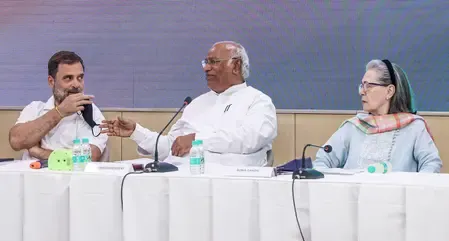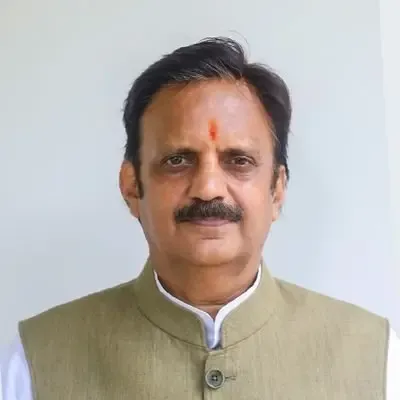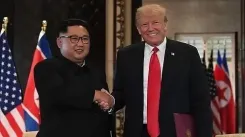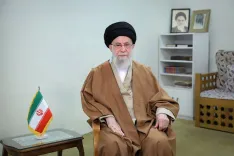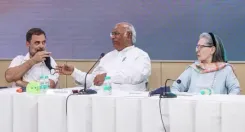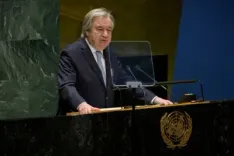CM Stalin Blames Centre for Treating States as Enslaved Territories

Synopsis
Key Takeaways
- CM Stalin's Accusation: Union government treats states as enslaved regions.
- Two-Language Policy: Tamil and English are the official languages of Tamil Nadu.
- Resistance Against Hindi: Any imposition of Hindi threatens Tamil identity.
- Cultural Obliteration: Language imposition viewed as an act against Tamil culture.
- Federal Character: Emphasis on safeguarding state autonomy.
Chennai, March 25 (NationPress) Tamil Nadu Chief Minister M. K. Stalin on Tuesday accused the union government of treating states like enslaved territories by imposing languages and committing financial injustices.
During a Special Calling Attention Motion in the Tamil Nadu Legislative Assembly, CM Stalin reaffirmed his government's steadfast commitment to the two-language policy of Tamil and English.
He cautioned that any attempts to impose a third language, especially Hindi, would not only jeopardize the Tamil language but also threaten Tamil culture and identity.
"We hold on to the two-language policy dearly because history has shown us that permitting another language will engulf our own," CM Stalin remarked.
"The imposition of Hindi is not merely a language issue - it is an act of cultural obliteration."
The Chief Minister's remarks emerged amid worries that the Centre is trying to implement its three-language policy through initiatives like PM SHRI schools, which the state has opted out of.
CM Stalin refuted the Centre's statements claiming that Tamil Nadu had consented to the trilingual system.
"Let there be no doubt - we are resolute. We will not endorse the trilingual policy under any circumstance," he proclaimed.
CM Stalin accused the BJP-led Union government of attempting to dominate states by enforcing Hindi and withholding funds as a punitive strategy.
"They view states as regions of indentured labour. This is why they engage in language imposition and financial atrocities," he stated.
He added, "We must put a stop to this entirely. We are compelled to adopt appropriate measures to safeguard the federal character of India and uphold the autonomy of the states."
He further stressed that only by ensuring state autonomy can the Tamil language, culture, and people be genuinely protected.
"This is not just about funding - it's about ethnicity, language, and identity. We are not slaves who will sacrifice the pride of our race for financial gain. This is the Dravidian model of governance - if there are obstacles, we will overcome them."
CM Stalin also hinted at an impending announcement aimed at bolstering state autonomy and securing the rights of Tamil Nadu.
Echoing the sentiments of ruling coalition members, the Chief Minister asserted that Tamil and English will remain the official languages of Tamil Nadu.
"This is not merely a linguistic policy - it is a vision, a way of life.
No matter how much we are criticized, we will never abandon our principles or deviate from our path," he stated.
Addressing specific concerns raised by Deputy Leader of the Opposition R. B. Udhayakumar regarding the state's stance on the language issue, CM Stalin reiterated that Tamil Nadu would not compromise.
Recalling the historical importance of the two-language policy resolution introduced by Dravidian icon C. N. Annadurai on January 23, 1968, CM Stalin remarked: "We are not against any language. We simply believe that these two languages - Tamil and English - are adequate for us."
"Many neighboring states are starting to recognize and appreciate Tamil Nadu's position. Other states across India are beginning to realize the strength and validity of Tamil Nadu's two-language policy. We have maintained this stance not out of hostility towards other languages, but out of our duty to protect Tamil from being overshadowed," he concluded.

